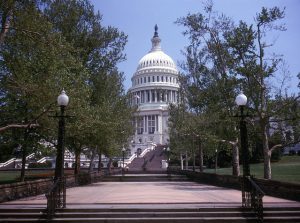California Cannabis Companies Lament Cash-Heavy Practices With Tax Season in Full Swing
With tax season in full swing, the deadline approaching April 15th, California cannabis companies and growers are hauling in piles of cash to government offices to ensure their taxes are paid. However, neither those firms or government employees are keen on dealing with the archaic process of hand-counting dollars. Yet as our California cannabis business attorneys can explain, these tax woes are indicative of the long-standing and much bigger problem: Marijuana businesses can’t access banking. 
Despite the fact that now 10 states plus the District of Columbia have marijuana legal for recreational purposes (1 in 4 Americans lives in a state where recreational use is legal), the federal Controlled Substances Act that still designates marijuana as a Schedule I narcotic means banks are reticent to get involved. Doing so could risk the U.S. Department of Justice coming after them for money laundering. Recently, The Modesto Bee reported the U.S. House of Representatives intends to hold hearings on bills that, if passed, could allow marijuana companies easier access to banking services – some six years after states started legalizing the plant for recreational use. It’s not the first time the issue has been raised, but it had always stalled in the past with Republicans being the Congressional majority – even when, as recently as 2017, the House bill had 95 bipartisan co-sponsors and a sister measure in the Senate had 20.
Lawmakers from Colorado and Washington are sponsoring a new marijuana banking bill that cannabis lawyers in Los Angeles know could help these companies – and government workers – avoid the risk of carrying around large cash stashes that may make them vulnerable to criminal targeting. As it now stands, the California Tax and Fee Administration already has to expend substantial resources to carefully plan for cannabis company tax payment drop-offs. In Humbolt County, where a large number of marijuana growers operate, the tax collector’s office has invested in numerous cash-counting machines, which so far have helped to processed some $10.3 million in marijuana tax revenue. Statewide, officials collected nearly $230 million in tax revenue from the marijuana industry in the first nine months of last year. Little less than half of that was reportedly submitted via cash payment. Continue reading
 Cannabis Law Group's Medical Marijuana Legal Blog
Cannabis Law Group's Medical Marijuana Legal Blog









 going to Canopy Growth. Canopy Growth, a Canadian company, was already considered one of the giants of the cannabis industry, and this investment will only further their global footprint, according to a report from
going to Canopy Growth. Canopy Growth, a Canadian company, was already considered one of the giants of the cannabis industry, and this investment will only further their global footprint, according to a report from  widespread issue, particularly with more stringent testing regulations recently becoming mandatory. According to a report from
widespread issue, particularly with more stringent testing regulations recently becoming mandatory. According to a report from  throughout the state. Many are saying the rampant fires are some of the worst in the state’s history, and are particularly devastating considering it was just last year that 1.3 million acres were annihilated by fires. An article from
throughout the state. Many are saying the rampant fires are some of the worst in the state’s history, and are particularly devastating considering it was just last year that 1.3 million acres were annihilated by fires. An article from  marijuana after its city council voted overwhelmingly to regulate industry operations. The council passed a series of amendments that will set guidelines for cultivators, testing labs, distributors, and dispensaries in the city, according to an article from
marijuana after its city council voted overwhelmingly to regulate industry operations. The council passed a series of amendments that will set guidelines for cultivators, testing labs, distributors, and dispensaries in the city, according to an article from  advantageous. Politicians across the country at all levels are stepping forward with pro-marijuana campaign platforms, and it’s paying off. Even here in California, where both medical and recreational marijuana are legal, it is clear voters want candidates who will continue to protect those laws, according to a report from
advantageous. Politicians across the country at all levels are stepping forward with pro-marijuana campaign platforms, and it’s paying off. Even here in California, where both medical and recreational marijuana are legal, it is clear voters want candidates who will continue to protect those laws, according to a report from